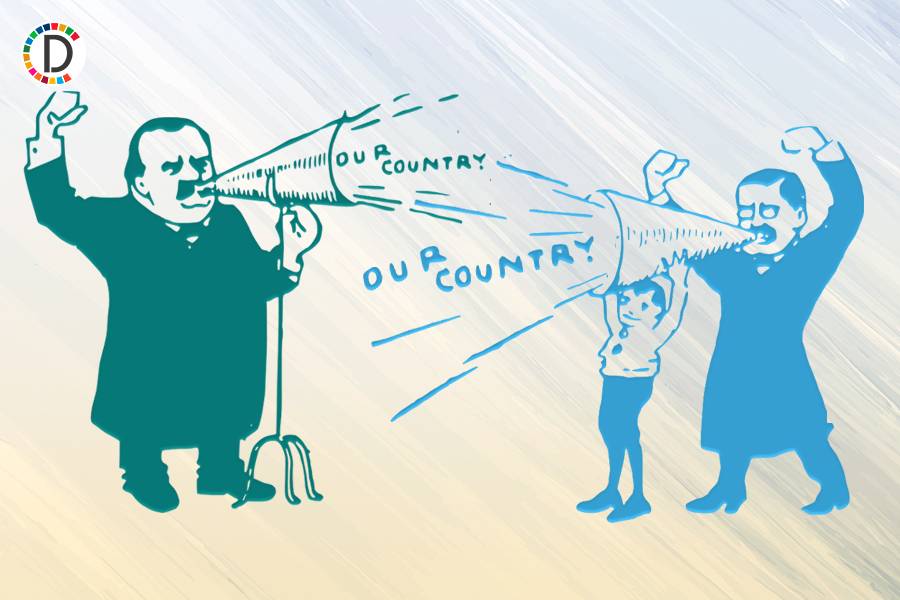Rich and retired: the boom beneficiaries who finance Germany's far right
He also gives money to far-right magazine Compact, which security services are monitoring as an extremist organisation, and regarded lockdowns to prevent the spread of the coronavirus pandemic as authoritarian overreach. "RICH OLD MEN" Issmer looks to Russia, where he holidayed last year to take a look behind what he saw as "warmongering" headlines, as a better model for a society than a Germany which he believes to be in decay. "(Moscow) was appealing," he said.

To hear Hartmut Issmer tell it, Germany's recent history is one of decline from the 1970s to 2015, when then-Chancellor Angela Merkel let the migrants in.
The construction engineer, who grew rich from the property boom in eastern Germany and is now the far-right Alternative for Germany's biggest known donor, looks with nostalgia to a time when he was in his 20s and with trepidation to the future. "Franz-Josef Strauss was still around," he says, referring to the firebrand Bavarian politician who was an icon of arch-conservative Cold War anti-communism. "I'm old now, but I don't want Germany going in the direction it's going now."
With the AfD high in opinion polls ahead of regional and European elections later this year, the party is facing legal and political scrutiny as never before, which could lead to it being cut off from all state financing. That would make backers like Issmer, who gave 250,000 euros last year, even more important. Wealthy, elderly products of Germany's post-war rise, they have cash to spare and views they are unafraid to air.
The AfD gets around half its total 20 million euros annual income from private sources - mainly donors and membership dues - and half from the state, whose funding to parties rises and falls in line with electoral performance. "The AfD gets fewer large donations of more than 50,000 euros than the other parties," said Kai Arzheimer, a politics professor at Mainz University.
That means the many businessmen giving between 10,000 and 50,000 euros - who make up around 20% of donations - are disproportionately influential. Most of the 100 or so in that category each year since 2018 are elected officials tithing part of their salary. The dozen or so who are not, with gifts ranging between 10,000 and 30,000 euros, tended to be, like Issmer, over 65 and prosperous, with successful careers in small business, often real estate, law, or light manufacturing behind them.
"We are seeing a positive trajectory for donations to the AfD," the party's treasurer Carsten Huetter told Reuters. But if the party fails to replace an ageing donor base then, in the absence of state funding, that could change. A genial, behatted man with a walrus moustache, Issmer, 72, turns up at market squares around Germany to preach his message in the clipped tones of the West German army tank commander he was during the Cold War.
But his message, of the need to return to Germany as it was before migration, before climate change fears, before Germany fully broke with Moscow over its invasion of Ukraine, is of the far right. He also gives money to far-right magazine Compact, which security services are monitoring as an extremist organisation, and regarded lockdowns to prevent the spread of the coronavirus pandemic as authoritarian overreach.
"RICH OLD MEN" Issmer looks to Russia, where he holidayed last year to take a look behind what he saw as "warmongering" headlines, as a better model for a society than a Germany which he believes to be in decay.
"(Moscow) was appealing," he said. "Very clean, and there wasn't what you have in Frankfurt: criminals on the street." Views like opposition to banning combustion-fuelled cars might seem congenial to Germany's car-focused domestic industries.
But with the party under surveillance by security services for suspected extremism and racism, and facing allegations, which it denies, of enjoying Moscow's favour, the party is too toxic for most potential sympathisers. Hans Christian Limmer, founder of a bakery chain, quit the company to protect it form association with the party after it became known that he had been one of a group of businessmen who had invited participants to an event where AfD figures discussed how to remove foreigners from Germany.
That leaves as the AfD's most visible business supporters showmen like Issmer, or Henning Zoz, who owns a small machine tooling company. Zoz, who in 2020 gave the party 14,500 euros and has repeatedly sought to be selected as a candidate for legislative office, describes himself as a nanotechnologist and refused to let schoolchildren with dyed hair or piercings visit his company.
Like Issmer, he was disgusted at former Chancellor Angela Merkel's "autocratic" decision to let a million refugees stay in Germany in 2016, and frets that climate policies will ruin German industry. He too was radicalised by the pandemic. People like them are the tip of the iceberg: under German law, only donors who give more than 10,000 euros must be identified.
"Even if the rich old men die, the party is well provided for," said Arzheimer, the political scientist. Mainstream parties receive far more large donations, especially from large companies and business associations.
In 2022, the AfD received 13.4 million euros in "self-generated income" - largely donations, compared to 55 million for the Greens and 115 million for the Social Democrats, both government parties. (Additional reporting by Sarah Marsh, Reporting by Thomas Escritt, Editing by Angus MacSwan)
(This story has not been edited by Devdiscourse staff and is auto-generated from a syndicated feed.)
ALSO READ
Biden Rules Out Talks with Putin Amid Russia's Struggles in Ukraine
Australian-Russian Couple Arrested on Espionage Charges Amid Rising Security Concerns
Biden Warns China Over Support to Russia Amid Ukraine Conflict
Australian Couple Charged with Spying for Russia
Australia Arrests Russian-Born Couple on Espionage Charges










